How Long Do Hue Bulbs Last? Latest Update
The world has been a brighter place to live since Thomas Edison introduced incandescent light bulbs to the globe. Smart bulbs are an essential component of any smart home, and they are frequently the first item purchased by anybody seeking greater control over their house.
Unlike previous traditional bulbs, Philips Hue employs LED bulbs, which are becoming increasingly popular because of their longer lifespan and lower cost. It might lead you to ask, how long do hue bulbs last? The lifespan of smart bulbs is one of the most critical things that we all worry about. This article will guide you all about the life expectancy of Philips Hue bulbs.
Quick Answer: With a lifespan of 25,000 hours, the frequency with which you should replace a Hue light bulb is determined by how many hours a day it gets used — but it can last up to 25 years.
What Are Hue Bulbs? – What’s All Hype About?
Before estimating how long your Hue smart lights will live, you must first determine which bulbs you have. People think of Philips Hue when they think of smart bulbs; therefore, it’s a competitive advantage that demands continual refining.
Phillips Hue bulbs are well worth the money. These LED lights are tiny and easy to transport. Philips bulbs are widely available, making it simple for beginners to learn how to use them in a matter of hours.
Philips lights may also be used in your smart home. They are built with minimal heat dissipation and excellent power efficiency in mind; you may change the consumption rate by putting the bulb in different settings. You may save additional energy by operating the Hue light on a low energy level.
How Long Do Hue Bulbs Last?
The answer, i.e. how long Philips Hue bulbs last, varies significantly between light-strips and regular bulbs. It would help if you estimated your Philips Hue bulb to last between 15,000 and 25,000 hours.
First-generation
In October 2012, Philips released these bulbs to the market. While restricted compared to later versions, a first-generation bulb can nevertheless provide years of service. The first generation Philips Hue Light bulb has a lifespan of 15000 hours.
It has a basic design and is available in a variety of colors. If you use the bulb for no more than 6 hours every day, the lamp can last up to seven years. It is the most affordable since it is the most basic design of the Philips Hue design.
Second-generation
The 2nd gen design was introduced to the market in December 2015, with significant advancements over the 1st gen development. The two qualities demonstrate that the second generation improved quality improvement with it. If you use the bulb for an average of 6 hours every day, it can last up to 12 years before being changed.
Third-generation
The Hue 3rd generation bulbs are more colorful than the 2nd generation bulb and comes in various colors. This model has a life expectancy of up to 25,000 hours. If you use the lamp for an average of six hours every day, the lightbulb can last up to 12 years.
Fourth Gen of Hue bulbs also have a similar life span as Gen 3 bulbs.
Remember that this data is based on a 6-hour-per-day average usage of the Philips Hue bulb.
The life span of Hue Bulbs Four Generations
Philips Hue Bulb Generation Average Years Lifespan
- 1st Generation 6-7 Years 15000 Hours
- 2nd Generation 11-13 Years 25000 Hours
- 3rd Generation 13-25 Years 25000 Hours
- 4th Generation 13-25 Years 25000 Hours
Factors Affect The Life Span Of Hue Bulbs
Occasionally, you’ll discover that the bulbs don’t last as long as the manufacturer claims. That doesn’t necessarily imply that the goods aren’t genuine. Several factors influence how long a light bulb will survive. These elements are as follows:
Power Supply
Electrical surges are a common cause of power outages, and these power outages induce bulb fracture, which typically shortens the bulb’s lifespan. According to lighting experts, hue bulbs at higher than specified power levels severely affect their longevity.
Environment
The longevity of your light is determined by its surroundings, and these delicate circuits are required to safeguard against dust, heat, and moisture. Otherwise, the smart bulb may burn out far sooner than its claimed lifespan. If you live in harsh conditions, there is a reasonable probability that your light will survive just a short time.
Components
The electronic components in the bulb must be of grade A quality, and some businesses employ grade B or C components to cut product costs. Lower-quality electrical parts are sensitive to heat, humidity, and voltage variations.
Casing
If the bulb is in a light fitting, it may grow somewhat warmer depending on the fitting; moreover, if the bulb gets used outside, moisture may become trapped again, affecting the bulb and its longevity.
Life Span of Hue Bulbs Comparison With Other Bulbs
Incandescent light bulbs have a lifespan of roughly 1,000 hours. By going with a Philips Hue bulb, you gain a lot of longevity.
Compared to incandescent bulbs, the Philips Hue LED bulb lasts longer and has lower operating expenses. So, even in terms of power bills, incandescent light will cost ten times as much as a Philips Hue LED bulb.
The Hue lights can sync with all smart hubs, several compatible applications, your TV, and a variety of other features, such as providing customized light programs.
Final Thought
In conclusion, Overall, the Philips Hue Bulbs last a long time–longer than other Smart Home Bulbs. If you’re thinking about getting them, odds are they’ll live far longer than you will in your current home!
A Philips hue bulb has a lifespan of 15,000 hours – 25,000 hours, if you pick superior variants. Because of their innovative technology, these lights are an excellent choice for tech enthusiasts. Philips is the company to call if you need to light up your house.

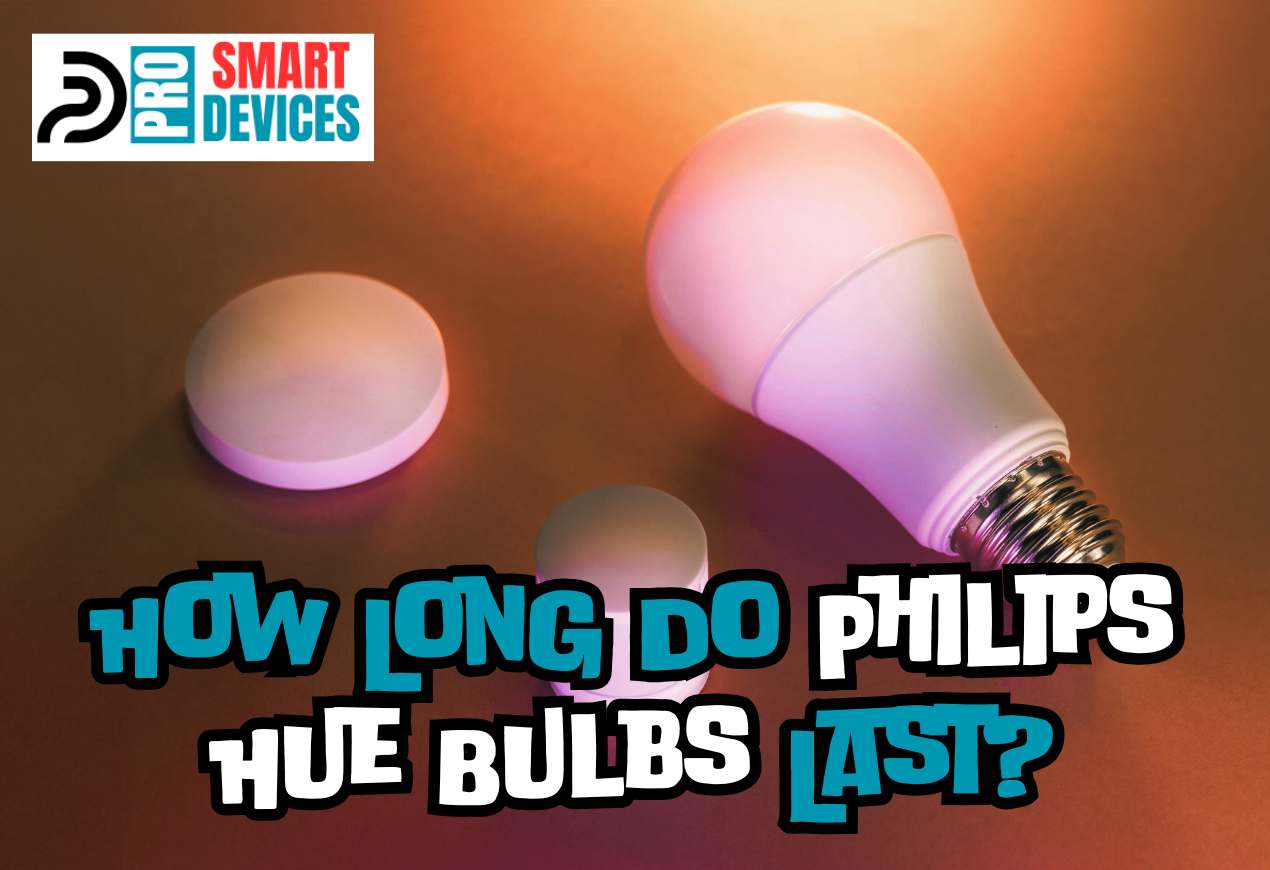
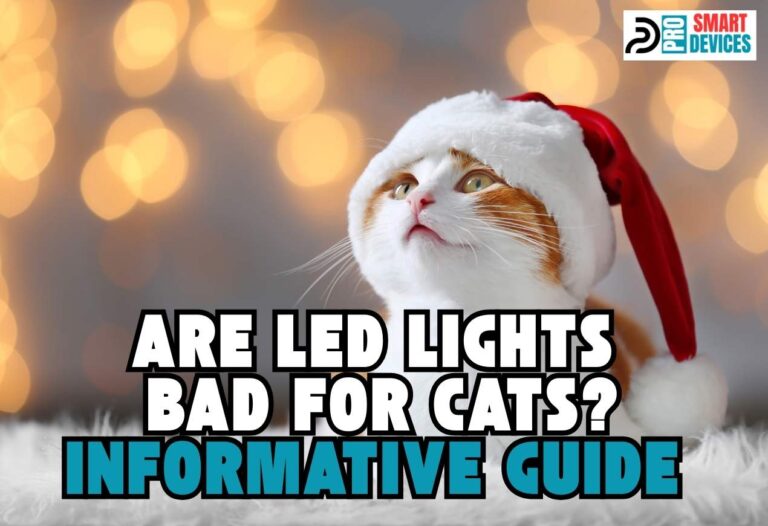
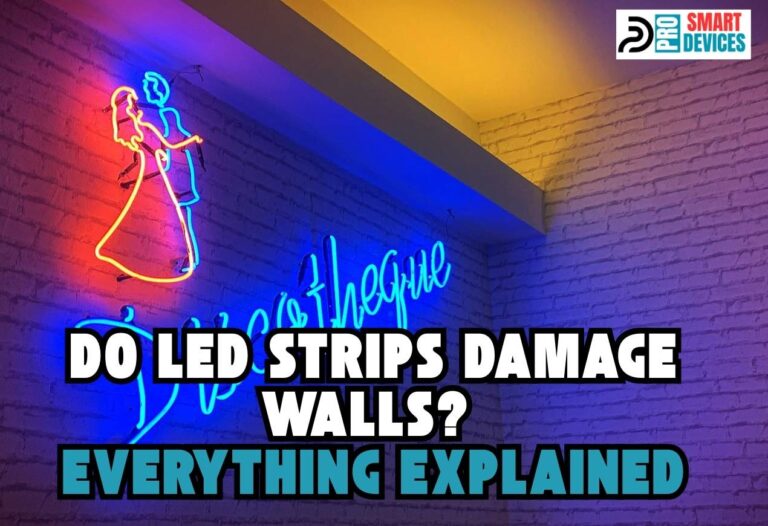

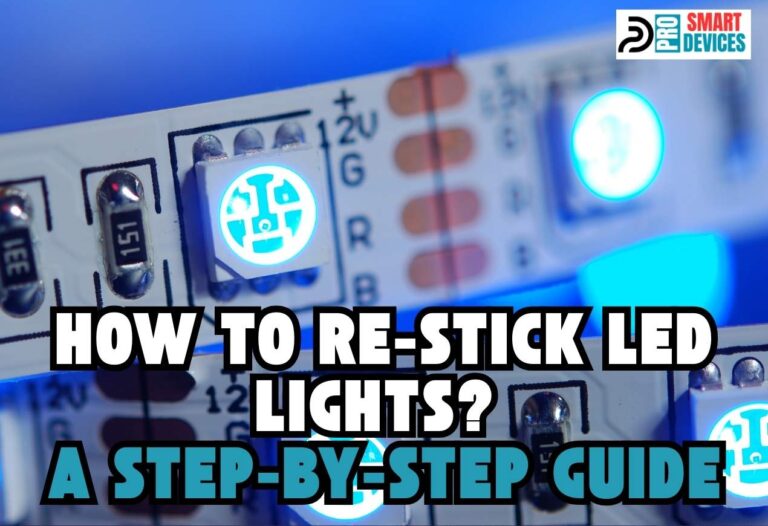
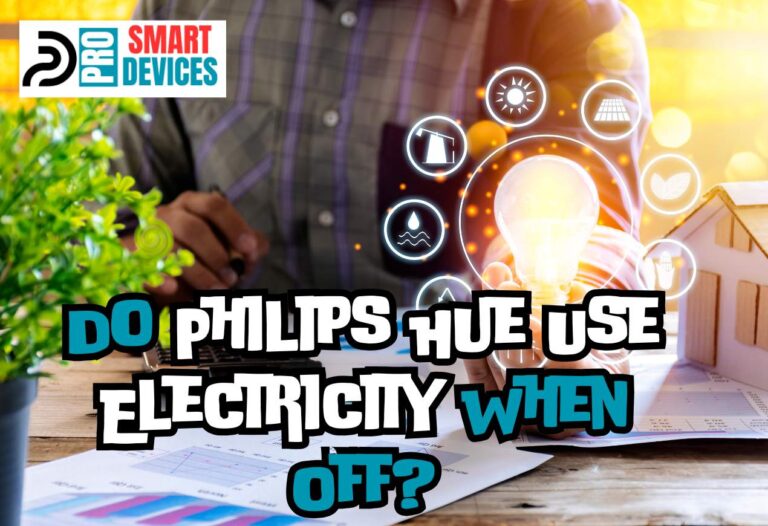
![LED Wafer Lights vs Can Lights [Comparison]](https://prosmartdevices.com/wp-content/uploads/2024/12/MENU-1-768x526.jpg)